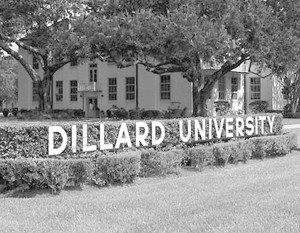Vice President Biden tries to calm HBCU leaders’ fears
5th October 2015 · 0 Comments
By Jazelle Hunt
NNPA Washington Correspondent
WASHINGTON (NNPA) — In a speech at the 2015 National Historically Black Colleges and Universities (HBCUs) Week Conference here last week, Vice President Joe Biden praised the nation’s Historically Black Colleges and Universities and announced an additional $10 billion in HBCU funding.
Despite enthusiastic applause and shouts of “Run, Joe, Run,” Biden did not allude to whether he has made up his mind about whether to challenge Hillary Clinton for the Democratic nomination for president in 2016. Instead, he took the opportunity to address a sore spot between the Obama administration and the HBCU community: the America’s College Promise proposal, which, if enacted, will offer two free years of community college for responsible students.
HBCU administrators and leaders, whose institutions are already underfunded, are concerned they’ll be unable to compete if funding is limited to community colleges. Many had suggested that two-year assistance be extended to 4-year colleges as well as two-year community colleges.
“I’ll be straight with you, I know a lot of you were a little bit upset when we called for two years of free community college,” Biden said. “Some of you are my friends, heads of universities, and you called me and said, ‘Joe, is that going to undercut us? We’re having financial difficulties now.’ The answer is it will not.”
 But not everyone is convinced. Of course, it all might be academic because it appears unlikely that a Republican-majority in the House and Senate is likely to fund Obama’s proposal.
But not everyone is convinced. Of course, it all might be academic because it appears unlikely that a Republican-majority in the House and Senate is likely to fund Obama’s proposal.
Biden also highlighted the conference’s theme – STEM innovation, partnerships, and entrepreneurship – and thanked the HBCU administrators, partners, and students present for their strides in this area.
In January, Biden visited Norfolk State University in Virginia to unveil a $25 million grant over five years for a cybersecurity consortium consisting of 13 HBCUs, two national labs, and a K-12 school district. Norfolk State, which already offers an online cybersecurity master’s degree program, will lead the initiative.
“It’s an economic imperative…that the number of African Americans in STEM increase,” said Biden. “HBCUs are only three percent of the nation’s schools. And you produce 27 percent of African-American graduates with STEM degrees. The human capital that you husband is critically important to our country and how competitive we’ll be in another five, 10, 20 years.”
In this way, HBCUs have contributed to both building the Black middle class and in turn, the nation’s global competitiveness. This kind of contribution and success should translate to personal and communal prosperity, the vice president said, but persistent socioeconomic inequality was undermining this dynamic.
“My daughter insists that I should say more, and I don’t. She talks about, ‘Dad, don’t pretend that there’s not still institutional bigotry in this country.’ Health care, criminal justice, access to jobs and good wages – that used to be a basic requirement,” he said.
“That used to be the promise of America, that if you contributed to the enterprise, you got to share in the benefits. If you worked hard and played by the rules, you got to share in the basic prosperity. That prosperity wasn’t available to everyone, particularly many African Americans. Now it’s not available to a significant number of all Americans.”
Most of Biden’s time onstage, however, was spent praising HBCUs or invoking the Black experience. He shared how much of the grassroots support and volunteer help he received during his Senate campaign came from Delaware State University. He talked about returning from law school in Syracuse, N.Y. during the 1968 riots and seeing his state on fire. And he lauded the audience for their role in uplifting Black youth.
“It’s more than just academics and leaderships. What’s built into HBCUs…is this sense that you educate, but you mentor the whole time. You constantly embrace these young women and men. You let them know, you can do this, too,” he stated.
In addition to Vice President Biden and HBCU All-Star Leah Williams, a Delaware State alumna, William Harvey, president of Hampton University and chair of the President’s Board of Advisors on HBCUs, addressed the crowd. He called for a “five percent funding aspirational goal” akin to the ones the federal government uses to direct its spending and subcontracting to women or veteran-owned enterprises.
Harvey also offered condolences to friends of the late George Cooper, who served as a professor and administrator at several HBCUs, as well as the executive director of the White House Initiative on Historically Black Colleges and Universities.
The Initiative sponsors the National HBCU Week Conference each year as a forum for HBCU stakeholders to exchange information and share innovations.
“This conference is about STEM education,” said Harvey. “There was a December report which mentioned that STEM education for HBCUs was at its lowest point since the year 2000. We need to broaden our participation in STEM and we need help from the government.”
This article originally published in the October 5, 2015 print edition of The Louisiana Weekly newspaper.



